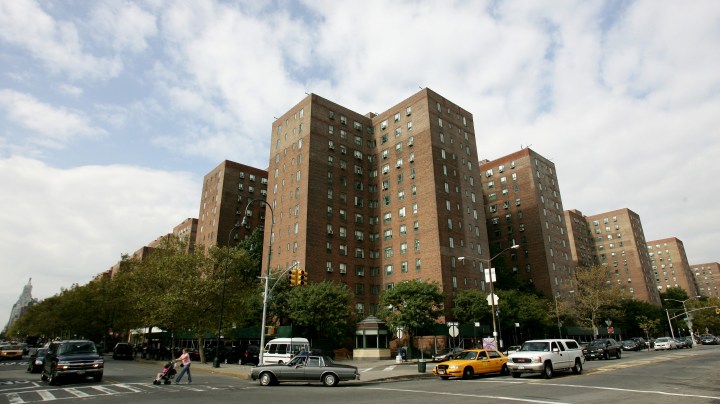
Private equity money changed the housing market, then the pandemic hit
Private equity money changed the housing market, then the pandemic hit

Residents of Berlin voted earlier this week in favor of a referendum to seize rental properties from the biggest corporate landlords in the city and turn them into public housing. The measure is nonbinding, and while the United States may not follow Berlin’s lead, concern has been growing about the influence of big corporate landlords in the U.S. housing market.
Most rental units in the U.S. are under some sort of corporate ownership. That spans from individuals with a limited liability company on up to giant real estate magnates with hundreds or thousands of units, said Jenny Schuetz with the Brookings Institution.
What worries most people, she said, is the increase of private equity money in the housing market from Wall Street firms like BlackRock.
“They’re more likely either to buy something that’s going to have quick appreciation and sell it or something that’s going to have higher than usual returns,” she said.
The trend goes back to the Great Recession, when investment firms started scooping up distressed properties for bargain-basement rates, according to Dan Immergluck, an urban studies professor at Georgia State University.
“In some suburban neighborhoods, the share of the largest private equity firms is often 10%, 15%, 20%,” he said.
That’s driven up prices for average homebuyers. And it poses challenges for renters, said Jim Baker with the Private Equity Stakeholder Project.
“It comes with being aggressive at raising rents, being aggressive about eviction practices,” Baker said.
The complicated business ownership structures make it difficult for tenants to respond, he said. “It’s almost mechanical. They just automatically file, you know, in some cases, hundreds of eviction filings.”
And he added that the hot pandemic housing market has left many smaller landlords looking to sell at top dollar.
There’s a lot happening in the world. Through it all, Marketplace is here for you.
You rely on Marketplace to break down the world’s events and tell you how it affects you in a fact-based, approachable way. We rely on your financial support to keep making that possible.
Your donation today powers the independent journalism that you rely on. For just $5/month, you can help sustain Marketplace so we can keep reporting on the things that matter to you.

















